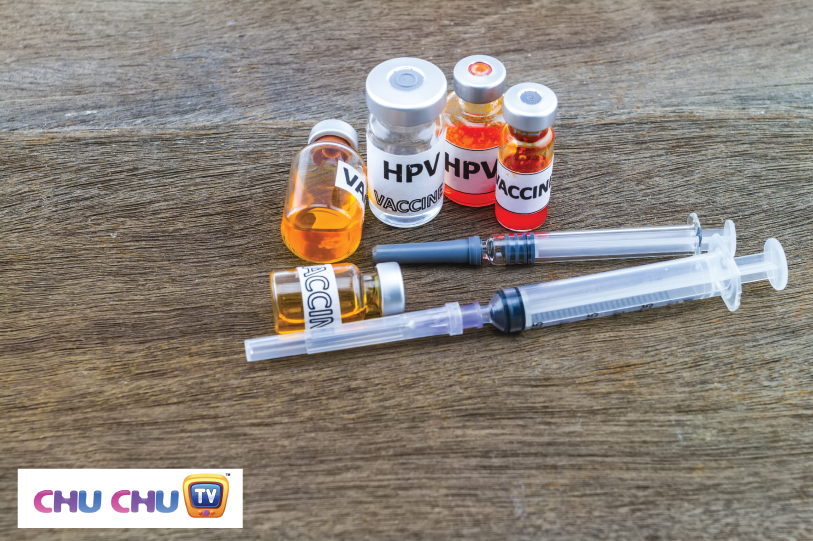Vaccinations are not an easy time for parents, as it’s difficult for them to see their child go through the pain. The crying and the tears make things emotionally more painful for the parents, as compared to what the child may experience physically. Moreover, with babies getting more than a dozen vaccinations in their first year, and sometimes multiple shots on the same day, things tend to get quite challenging for parents and the baby as well.
However, vaccinations cannot be avoided since they protect the child from a wide variety of dangerous diseases. In the first year, vaccinations for the baby will include Hepatitis B, Rotavirus, Diphtheria, Tetanus, Pertussis (a whooping cough), Haemophilus influenza type B, PVC or Pneumococcal, Polio, Mumps, Measles, Rubella, Varicella, and Hepatitis A. Vaccinations are entirely safe and these are closely monitored by government health agencies to ensure that there are no associated risks. Some babies may experience certain side-effects such as fussiness and mild fever, but these symptoms dissipate in a few days, often without the need for medical intervention.
As a parent, you may have certain worries about your baby’s vaccinations. It would be worthwhile to note that the long-term benefits of vaccinations far outweigh the short-term risks. Furthermore, the risks are just the minor symptoms that the baby may experience after the vaccination. Serious risks are extremely rare, the chances of which are around one in a million shots, and even these can be managed with medical care. For a smooth immunization experience and to ease your immunization-related fears and anxieties, here are some important vaccination tips for babies before they turn one.
Things you can do at the doctor’s office:
To make the shots less painful for your child, you can comfort them by cuddling, talking or singing to them softly. As you cuddle them, ensure that you smile and make eye contact to let them know that everything is okay. If your child has developed a special liking for a specific toy or any other thing, then you can distract them with those as well. After the shots are given, you can comfort them through skin-to-skin contact. Offering something sweet such as juice has also shown to soothe the baby after shots. The sweet formula applies to babies that are 6 months or older.
Breastfeeding can help reduce your baby’s distress:
Research studies have indicated that breastfeeding babies soon after their vaccinations can help reduce their distress. Although there’s a lot of variability in these studies, many pediatricians opine that breastfeeding during vaccinations is normally good for the baby. The primary rationale is that breastfeeding is comforting for the child, and may help alleviate the distress experienced during vaccinations. Some research studies have found that breastfeeding before vaccinations can also be helpful. You can try that as well if it’s okay with your doctor.
No need to worry if vaccination affects your baby’s sleep patterns:
Depending on your baby’s response to certain vaccines, they might either sleep more or less after receiving the shots. This is considered normal and attributed to the vaccine taking effect. If a baby sleeps more after shots, it is usually considered restorative sleep, which is essential for the desired immune response. However, babies sleeping less should not be taken as something to be worried about. It may be just that the baby’s body is responding in a slightly different way to the vaccination. Consult your doctor if you notice any major differences in your baby’s sleep patterns post their shots.
Consider these exceptions for vaccinations:
Even though vaccinations are a must for every child, there can be some exceptions. For example, if the baby is moderately or majorly ill on the day of their doctor’s appointment, they can be asked to receive the shots at a later date. Vaccines are safe, but they may complicate matters if the baby is already sick. Another example can be about a baby who may have experienced a life-threatening allergic reaction after receiving a vaccine. In such cases, the child should not be given the remaining doses of the vaccine. A doctor may prescribe alternatives or let you know about the next steps. You also need to talk to your doctor if your child already has some type of severe allergy to certain substances. Based on your information, the doctor will be able to tell you if the vaccines are safe for your baby.
Ignore the conspiracy theories:
In recent times, vaccinations have become a topic of intense debate with several groups questioning its relevance, safety, and efficacy. While most such debates might appear believable and thought-provoking, it’s important to note that vaccinations have helped save millions of lives across the globe. These have also contributed significantly towards eradicating a wide variety of life-threatening and debilitating diseases. Most protests against vaccinations are based on standalone studies, something that may not provide the true story. Moreover, vaccine manufacturers are constantly reviewing immunization data to monitor the safety of vaccines and also to create better vaccines for the future. Follow what your doctor says, and your baby shall be absolutely fine.
When to see the doctor:
Certain symptoms such as mild fever and redness, soreness, and swelling at the vaccination site are considered normal and these will go away in a few days. However, it is possible that the child may experience some severe problems post vaccination. These are extremely rare, but the probability always exists. See the doctor immediately if you come across symptoms such as high fever, severe allergic reaction, seizure, vomiting, bleeding at the vaccination site, bowel blockage, etc. Anything unusual other than the mild symptoms needs to be reported to the doctor immediately.
Vaccinations are not just to protect your baby, but they are also for the protection of others. It’s more like a social responsibility that is vital for the overall health of people in your local community, city, nation and even globally. A child who is not immunized may become a carrier for certain disease and there’s always a probability that they might infect others. This is why vaccinations are a must for every baby.
















Remember, the shots may hurt for a moment, but the protection they’re giving your baby is good for a lifetime. In the past we have encouraged using these medications to reduce any discomfort or potential fever from vaccines.